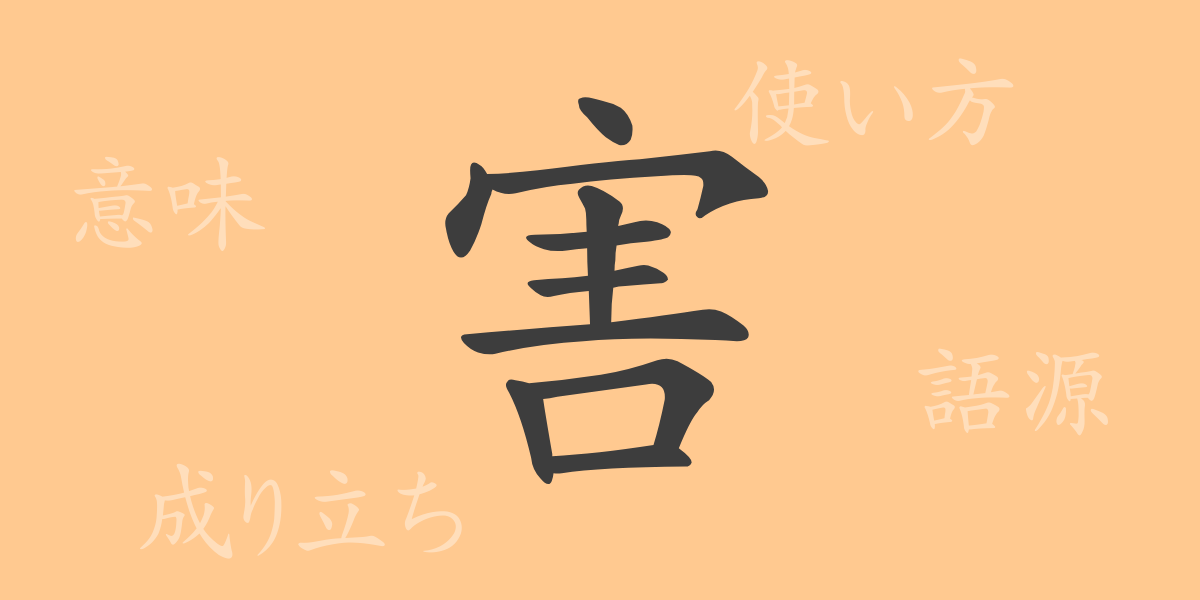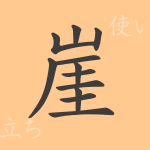Japan’s character culture is profound, with each kanji representing a long history and a variety of meanings. In this feature, we spotlight the commonly used kanji “害” (Gai), delving into its origins and contemporary usage. Although this kanji is frequently encountered in daily life, what stories lie behind it? Let’s step into the world of “害” (Gai) together.
The Origins (Etymology) of 害 (Gai)
The kanji “害” (Gai) originated in ancient China, and its form has evolved over time. Initially, it was a pictograph that represented pests invading from the outside, and later it took on more abstract meanings. This character came to be used to denote anything that causes a harmful effect or damage, and its essential meaning has remained unchanged in modern times.
The Meaning and Usage of 害 (Gai)
The kanji “害” (Gai) refers to damage, harmful effects, disasters, and other negative impacts. It can be used on its own or as part of compound words. For example, “被害” (Higai) denotes a state of having suffered damage, while “害虫” (Gaityuu) refers to insects that harm crops.
How to Read 害 (Gai), Stroke Count, and Radical
Let’s look at the basic information of the kanji “害” (Gai).
- Reading: The on’yomi (Chinese reading) is “がい” (GAI), and there is no particular kun’yomi (Japanese reading).
- Stroke Count: It has a total of 10 strokes.
- Radical: The radical is “宀” (Ukanmuri).
Idioms, Phrases, and Proverbs Using 害 (Gai) and Their Meanings
There are numerous idioms, phrases, and proverbs that include “害” (Gai). Here are some examples:
- 害悪 (Gaiaku): To have a bad influence or cause harm.
- 有害 (Yuugai): To have a harmful effect on health or life.
- 無害 (Mugai): Harmless, not causing any adverse effects.
- 損害 (Songai): To suffer a loss or damage.
- 予防は治療に勝る (Yobou-ha-tiryou-ni-masa-ru): A proverb meaning that preventing diseases or harms is better than treating them after they occur.
Summary of 害 (Gai)
The kanji “害” (Gai) is used in various aspects of our lives. Understanding the significance of this single character and using it appropriately is incredibly important for enriching communication. Through this exploration, your understanding of the meanings and background of “害” (Gai) should have deepened. Such knowledge will undoubtedly prove useful in your daily choice of words.

























